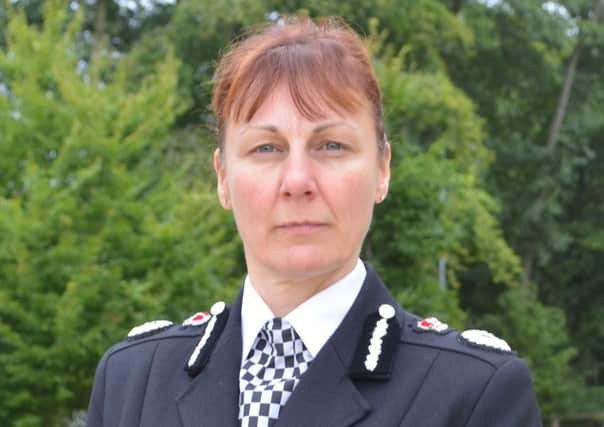Traumatised North Yorkshire Police officers '˜facing long waits for NHS therapy'


The force has seen a near-doubling in staff taking time off sick with stress, anxiety, depression or post-traumatic stress disorder (PTSD) in three years.
Chief Constable Lisa Winward said while the NHS would treat a broken leg immediately, those with serious mental health trauma often faced six-month waits.
Advertisement
Hide AdAdvertisement
Hide Ad“The National Health Service doesn’t have enough capacity to support those people quickly,” she said. “The best analogy I can use is if somebody’s got a broken leg the hospital won’t say to them, ‘We’ve got nobody that can help you for six months, you’ll be alright, just hobble round on it.’ But that’s what’s happening with mental health.”
Ms Winward said in the past, police forces dealt with mainly physical injuries but now it was “more mental health injury”.
However, she said officers off sick were being told by GPs that “you’ll have to wait six months for any sort of behavioural therapy”.
She said: “With mental health, people are going to their GPs saying, ‘I’m a police officer, and I am in need, I’m traumatised’, and the services just don’t have the capacity to say we’ll help you right now.
Advertisement
Hide AdAdvertisement
Hide Ad“So those people are not being helped as quickly as they could be. They come back to us and say, ‘I need my own agency’s occupational health support’.
“We try and provide that as quickly and effectively as possible, but then it takes a long time for somebody’s mental health to become better, or to be supported, rather than a broken leg healing. So I think we’re finding it’s very difficult.”
Ms Winward said its occupational health teams were supporting officers, but more of those services would be needed as greater numbers sought help.
Advertisement
Hide AdAdvertisement
Hide AdHarrogate and Rural District Clinical Commissioning Group (CCG) – the lead for commissioning mental health services for three of North Yorkshire’s four CCGs – said it was working closely with partners county-wide to ensure mental health and physical health were equal priorities.
A spokesman said: “We recognise the important contribution of our emergency services and the challenges which come with these roles, as well as the need to ensure mental health services are available and accessible to our North Yorkshire population.”
He said services were available round-the-clock for anyone in crisis or experiencing a mental health emergency, while GPs may be able to provide appropriate care for those with less urgent needs or refer them on to community mental health teams for additional treatment.
The spokesman did not address the waiting times issue, but said anyone in Yorkshire could refer themselves for psychological ‘talking’ therapies that might be suitable for some patients with anxiety, depression, PTSD and other conditions.
Advertisement
Hide AdAdvertisement
Hide AdThe Yorkshire Post’s investigation found one in 10 police officers or staff at North Yorkshire were off work in 2017/18 due to stress, anxiety, depression or PTSD, the highest rate of any force in our region.
One in every 15 employees were affected at South Yorkshire Police and one in every 16 employees at Humberside Police. West Yorkshire Police did respond to the Freedom of Information request.
Ms Winward said one factor in the high rate could be that people were more willing to admit to suffering from mental ill health than they had been in the past.
North Yorkshire Police and Crime Commissioner Julia Mulligan said there was a wide-ranging wellbeing programme and a team of excellent welfare advisers in place at the organisation.
Advertisement
Hide AdAdvertisement
Hide Ad“On top of that, the police recently implemented a new ‘TRiM’ initiative – Trauma Risk Management – and it is a way of assessing and helping people who have experienced a traumatic incident at work,” she said. “Notwithstanding this, I will continue to scrutinise these figures to assess whether our current support structures are sufficient.”